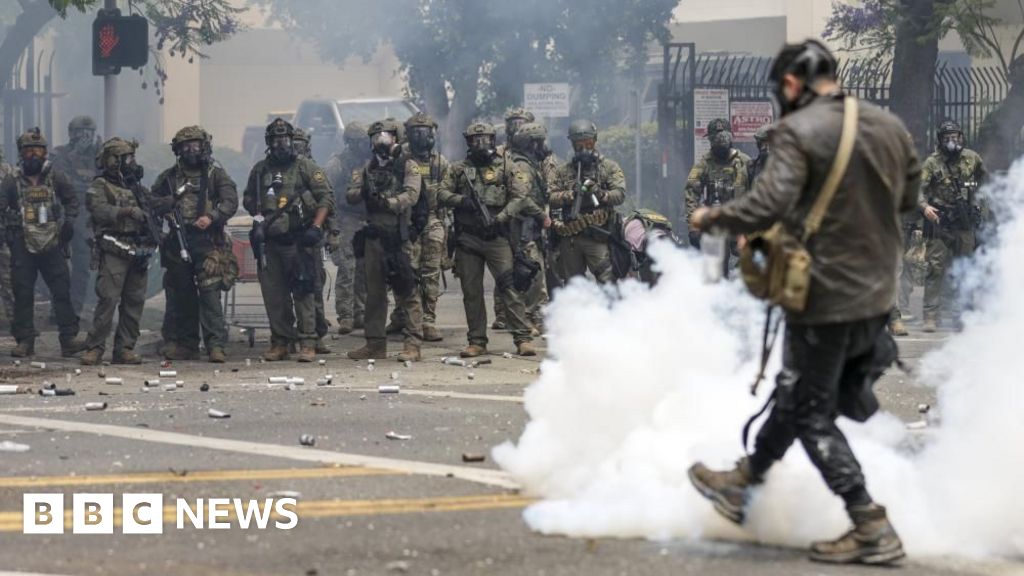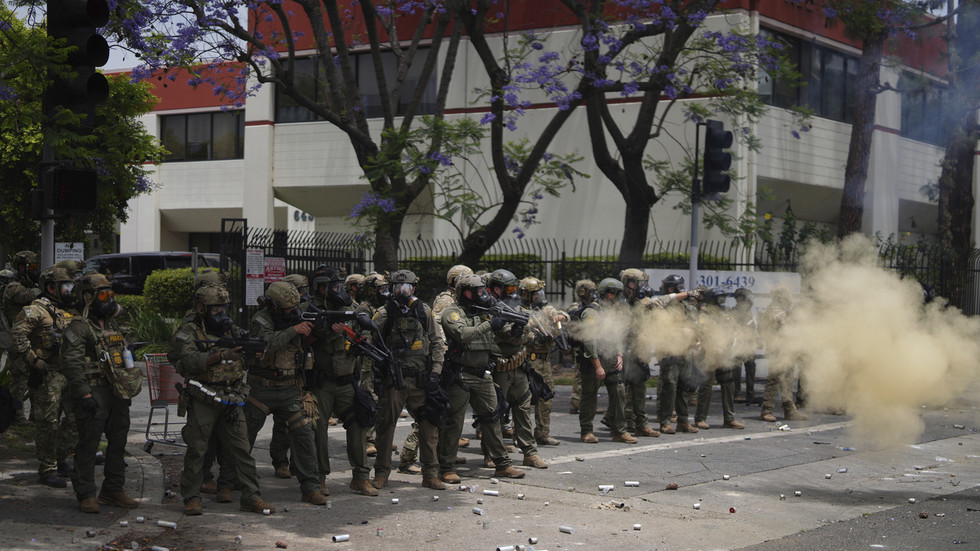Vatican-watchers say the new pope’s choice of name, a tribute to Leo III’s 19th-century pursuit of social justice and reform, points to continuity with many of the causes also championed by the late Pope Francis.
Others have pointed at the traditional red cape and papal trappings Leo XIV sported on his first appearance as pope – garments his predecessor eschewed upon his election in 2013 – as suggesting a return to some degree of tradition after Francis's unorthodox pontificate.
Read morePope Leo XIV: Robert Prevost, from Peru missionary to first American pontiff
Here’s a look at where the Chicago-born former missionary and Peru-based archbishop has stood on some of the key issues roiling the 1.4 billion-member Catholic Church.
-
Same-sex couples and LGBT+ rights
The new pontiff, born Robert Francis Prevost, is expected to adopt a more cautious stance on the subject of same-sex couples after his predecessor authorised priests to offer informal blessings of couples in “irregular” unions in a landmark 2023 document that angered conservatives within the Church.
In October 2024, Prevost expressed the need for dialogue between each bishops’ conference to discuss blessings on a case-by-case basis, taking into account cultural differences around the world, according to a report by the College of Cardinals.
He noted that some bishops in Africa described how local culture made the church's new policy difficult to implement. "[I]t wasn’t rejecting the teaching authority of Rome, it was saying that our cultural situation is such that the application of this document is just not going to work,” then Cardinal Prevost said.
Following his election to the papacy, LGBT+ faith groups expressed hope that the first American pontiff had “moved on” from opinions he voiced in a 2012 address to the world Synod of Bishops, when he criticised the media's "sympathy" for the “homosexual lifestyle”.
“Western mass media is extraordinarily effective in fostering within the general public enormous sympathy for beliefs and practices that are at odds with the Gospel – for example abortion, homosexual lifestyle, euthanasia,” Prevost said at the time.
“We trust he will be open to listen to the lived experience of LGBT+ Catholics, their parents and families,” the UK-based LGBT+ Catholics Westminster Pastoral Council said in a statement on Thursday.
“Opinions and ideas can change,” the group added, noting that Prevost had “expressed openness to marginalised groups”.
To display this content from YouTube, you must enable advertisement tracking and audience measurement.
One of your browser extensions seems to be blocking the video player from loading. To watch this content, you may need to disable it on this site.

01:40
-
Women in the Church
Pope Francis’s efforts to open the Church to the modern world helped foster debate on the role of women in the church, although Pope Leo XIV, like his predecessor, remains opposed to the ordination of women as priests.
At a gathering of bishops in October 2023, Prevost argued that the ordination of women would not solve the Church's problems and could even create new ones, according to the report by the College of Cardinals.
The 69-year-old pope does, however, support greater inclusion of women in non-ordained leadership roles within the Church.

Significantly, Prevost presided over one of the most notable reforms of Francis’s pontificate, when he added three women to the voting bloc that decides which bishop nominations to forward to the pope.
As Leo XIV prepared to celebrate his first Mass as pontiff in the Sistine Chapel on Friday, two women delivered the traditional Scripture readings, perhaps an indication of the new pope's intention to follow in his predecessor's footsteps on expanding the role of women.
-
Climate change
The former archbishop of Chiclayo is known in Peru as a saintly missionary who waded through mud to bring help to the needy after torrential rains flooded the region. He is widely expected to pursue his predecessor’s advocacy in the fight against climate change.
Prevost declared in November 2024 that “humanity's dominion over nature should not be tyrannical” but rather “a relationship of reciprocity”.
He has voiced support for the use of climate-friendly technology, such as solar panels and electric vehicles, and has urged followers on social media to sign petitions calling for climate action.
-
Social justice
Pope Leo XIV’s choice of name signals a commitment to social justice that is in line with his predecessor’s global ministry and harks back to a late 19th-century pope regarded as the founder of Catholic social thought.
Vatican spokesman Matteo Bruni confirmed that the choice of the name Leo was a reference to Leo XIII, whose “Rerum Novarum” encyclical addressed workers’ rights and capitalism at the dawn of the industrial age.
Read moreWhy Leo XIV? Pope's chosen name suggests commitment to social justice
The new pontiff, a member of the mendicant Augustinian Order known for its charity work, is expected to continue Francis’s critique of unbridled capitalism and his social outreach in favour of the poor and marginalised.
He has also spoken out against racism.
At the height of the 2020 racial justice movement that swept the globe after the police killing of George Floyd, Prevost retweeted a series of posts on his then Twitter account, urging the eradication of prejudice and hatred.
“We need to hear more from leaders in the Church, to reject racism and seek justice,” he wrote in a post from May 30, 2020.
-
Immigration
Like his predecessor, who spoke out against the current US administration’s mass deportation of immigrants, the first US pontiff is starkly at odds with the White House on the subject of immigration.
Then Cardinal Prevost's X account indicates a history of criticising the policies of US President Donald Trump and Vice President JD Vance, a Catholic convert who has argued that Christians should prioritise their families over the rest of the world.
Read morePrior to election, Pope Leo reposted articles criticising Trump and Vance
He reposted an article in February that was bluntly headlined, “JD Vance is wrong: Jesus doesn’t ask us to rank our love for others."
When Trump had a meeting last month with El Salvador's President Nayib Bukele to discuss jailing suspected gang members deported from the US at a prison notorious for human rights abuses, Prevost reposted a comment that asked: “Do you not see the suffering? Is your conscience not disturbed?”
To display this content from X (Twitter), you must enable advertisement tracking and audience measurement.
-
Church sex abuse
In a 2023 interview with the Vatican News website, Prevost said the Church must be transparent and honest in dealing with the abuse allegations that have shattered its standing across the world.
His own record on sexual abuse cases, however, has not been thoroughly examined in public.
The Survivors Network of those Abused by Priests, a US-based advocacy group, expressed “grave concern” about his election, accusing him of failing to take action against suspected predatory priests when he served in both Chicago and in Peru.
"You can end the abuse crisis – the only question is, will you?" it said in a statement addressed to the new pope.
Bishop Accountability, a group that tracks clergy sexual abuse, was more cautious in its response, suggesting the former archbishop had a mixed record on the issue. The group praised his efforts to help one abuse victim in Peru but raised questions about his handling of other allegations levelled against two priests.
-
‘Synodality’ and inclusivity
“Synodality”, which refers to efforts to make the Church more inclusive, attentive to lay people and respectful of diversity, was a key mantra of Francis’s pontificate. His successor is widely expected to stick to that approach.
The future pope said in a 2023 interview with Vatican News that polarisation in the Church was a wound that needed to be healed.
“Divisions and polemics in the Church do not help anything. We bishops especially must accelerate this movement towards unity, towards communion in the Church,” he said.
To display this content from YouTube, you must enable advertisement tracking and audience measurement.
One of your browser extensions seems to be blocking the video player from loading. To watch this content, you may need to disable it on this site.

03:55
Thanking his predecessor in his first address from the balcony of St. Peter’s Basilica on Thursday, the newly elected pope made clear his intention to carry forward the vision of a Church that walks together, builds bridges and remains close to those suffering.
“To all of you, brothers and sisters of Rome, of Italy, of the whole world, we want to be a synodal Church, a Church that walks, a Church that always seeks peace, that always seeks charity, that always seeks to be close, especially to those who suffer,” he said.
Natalia Imperatori-Lee, the chair of religious studies at Manhattan University in the Bronx, told AP that Prevost’s election could send a strong message to the US Catholic Church, which has been deeply divided between conservatives and progressives and which has fuelled much of the right-wing opposition to Francis.
“I think it is going to be exciting to see a different kind of American Catholicism in Rome,’’ she said.
This article was translated from the original in French by Benjamin Dodman.











 English (US) ·
English (US) ·